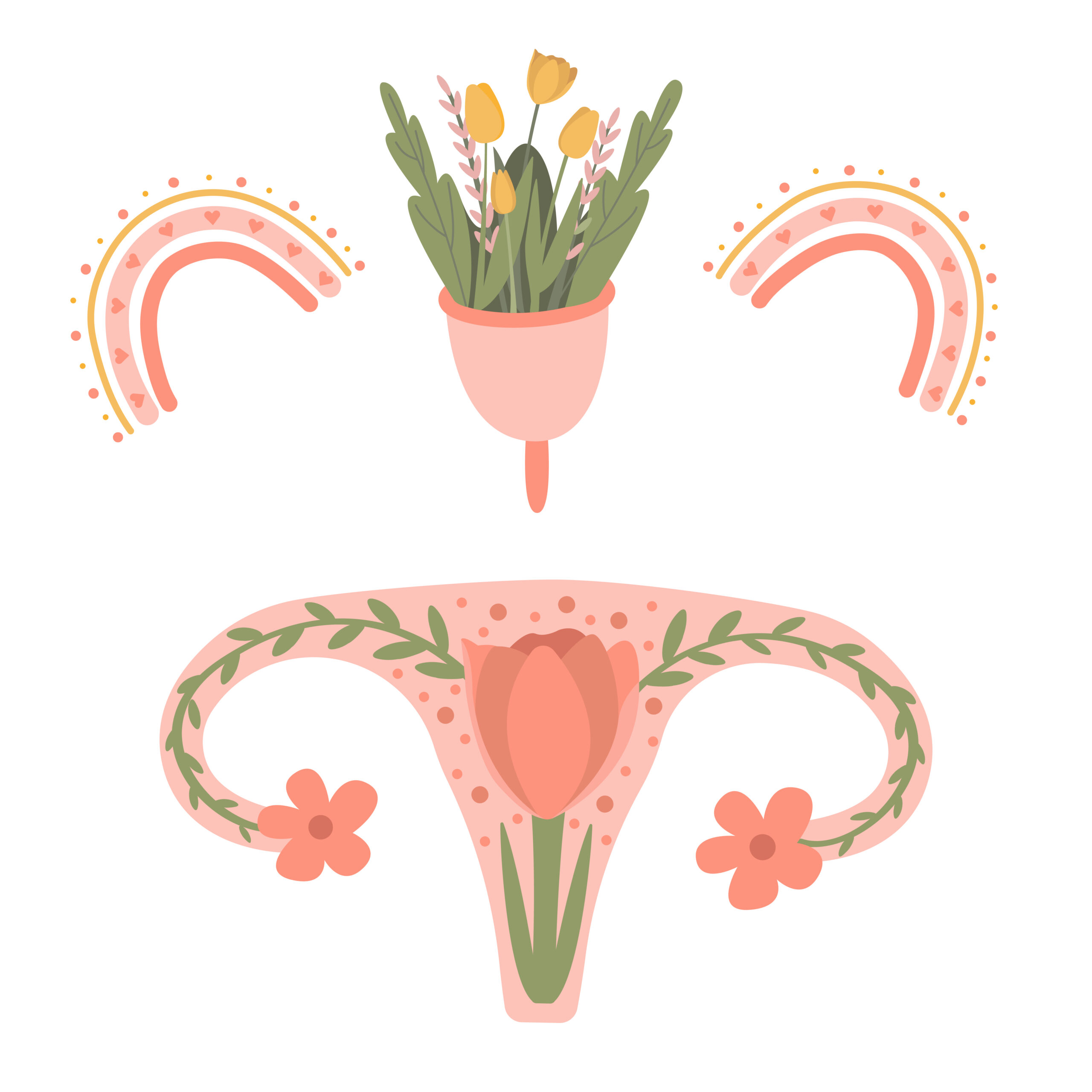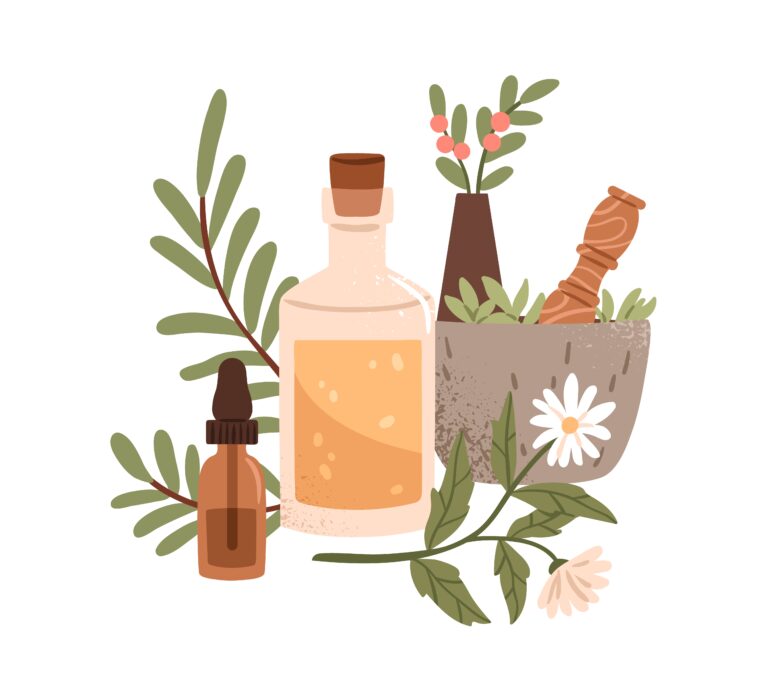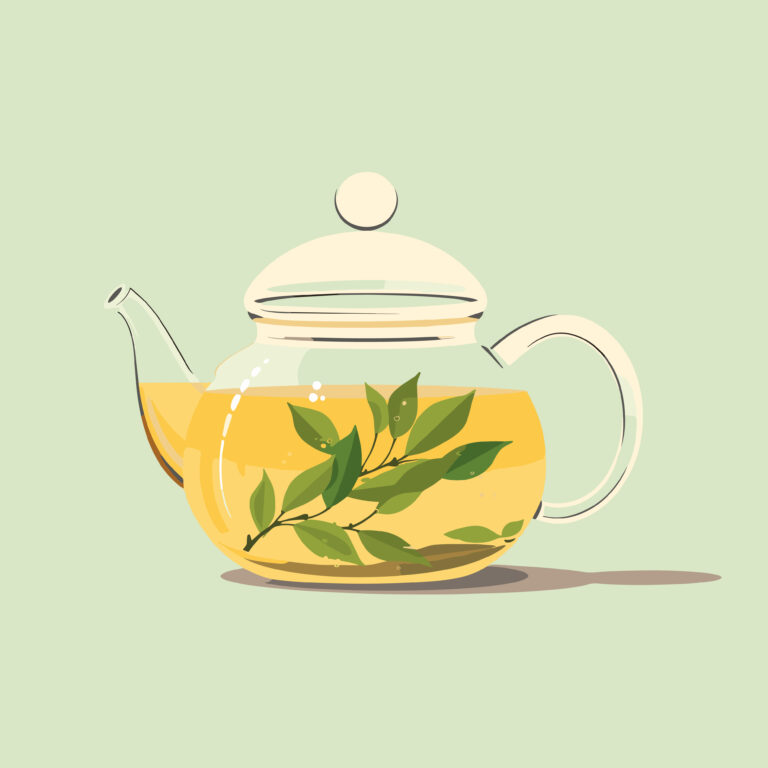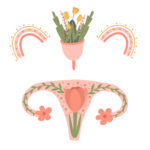With Love, Katie.
Once I read that there is a way to help your hormones naturally, but I thought it was a joke, so I went on pills for a few years. Time passed, I had a few pregnancies, and then I never thought much about my hormones until they started screaming at me. And I was 33… so, it’s never to late for a reminder from your body. So, if there is a thing like hormone balance naturally, this will be the post about it.
There was a time when I just didn’t feel like myself anymore. I was constantly bloated, moody, foggy, and exhausted, and of course I never had time for myself, like most mothers do—even after a full night of sleep. My skin would break out randomly, but not with 1-2 acne, but 5-10, my cycle became quite unpredictable, and I started to wonder if this was just what being a woman meant.
I thought maybe it was normal to feel this off, because for generations, this is what we are told. But deep down, I knew something was out of sync, because having these symptoms is not okay, not even at 33 or 43.
What followed was not a quick fix or a miracle product. It was a slow, intentional journey toward hormone rebalance and balance—a holistic approach that didn’t just treat symptoms but supported me, fully. I started listening to my body, understanding what I need to change.
Starting with the basics…Holistic living invites you, invited me to slow down, to tune into our real needs, and to care for ourselves from the inside out—not just to look well, but to feel well. It’s about choosing nourishment over restriction, rest over hustle, and connection over perfection. In a world that often praises burnout and self-neglect, holistic living becomes a gentle rebellion.
- It helps us regulate our hormones, support our nervous systems, and listen to the quiet wisdom of our bodies.
- It reconnects us with nature, with ritual, with presence.
- It reminds us that joy, pleasure, and rest are not indulgent—they’re essential.
For women who feel tired, overwhelmed, or lost, holistic living offers a soft path back to wholeness. Because you don’t need to fix yourself—you just need to remember yourself.
My Wake-Up Call
I started researching hormones late at night, read about holistic lifestlye, hormone rebalance, natural ways, cycle-syncing, searching for answers in podcasts, blogs, and books, beacuse I was pretty sure I didn’t want to go on the pill, instead all I wanted was to feel myself again and be proud of my skin and my whole me when I did not wear makeup.
I realized I was:
- Skipping breakfast or eating only carbs in the morning, something really fast
- Drinking too much coffee on an empty stomach, beacuse we always hurry in the mornings, especially mothers.
- Ignoring rest and pushing through fatigue…because we are though to do this…
- Under-eating during stressful times…rushing, rushing, and rushing again…
- Overloading my to-do list and under-nourishing my nervous system, because, once again, I find myself always rushing and not enjoying time.
So I began to shift, but slowly, softly. Taking small steps allows your body and mind to adjust gently, creating sustainable and lasting change. When you rush, it’s easy to become overwhelmed or disconnected from what truly supports your well-being.
5 impressive tips to balance your hormones naturally, holistically
1. Prioritize Nourishing Foods: Fats, Proteins & Minerals
Your hormones are made from fats, so eating enough healthy fats (like egg yolks, butter, olive oil, seeds, ghee, and avocado) is essential for hormone production.
Pair these with high-quality proteins (like eggs, legumes, fish, or tofu) to stabilize blood sugar, which directly impacts mood, energy, and cycle health. Eating breakfast within an hour of waking, and including protein + fat + salt (omelette, scrambled eggs, fried eggs) in every meal, helps your body feel safe and steady.
Listen, I am not against oats in the mornings, I just really think that oats shifted somehow to cereals in this fast world, which is clearly not healthy. And, oats don’t have fats, which is not okay in the morning, because in the morning, fats are a big need for your hormones.
2. Support Your Gut Health
Your gut and hormones are deeply connected. A healthy gut helps break down and eliminate excess hormones, supports nutrient absorption, and balances inflammation. Nourish it with fermented foods (like kefir – iIadore kefir, like literally adore, sauerkraut, or plant-based alternatives), bone broth, cooked vegetables, and fiber. Here I wanna mention that you can eat oats, I am not against oats, just not first thing in the morning. For example, add some oats at 10 A.M., with some yogurt or seeds, to make sure you eat fats to.
Listen, now you might think that fermented food means kefir. You can make fermented veggies too. You can use radish, peppers, garlic or carrots too. Add about 3.5 g of salt to your 100 g of filtered water. Stir the salt enough, add the sliced radishes, and put them in a jar. You are welcome.
Avoid overdoing raw salads or sugar-heavy “wellness” snacks, and instead aim for warm, digestible meals that feel grounding. You can choose dark chocolate or some seeds to feel better.
3. Move with Your Cycle
Instead of pushing the same workout every day, try syncing movement to your menstrual cycle. During your follicular and ovulatory phases, you may have more energy for strength training, HIIT, or cardio. During luteal and menstrual phases, opt for slower movement like walking, stretching, or yoga, this can all be done at home, easily.
This approach helps reduce cortisol, supports progesterone, and protects your energy—all crucial for hormonal balance.
4. Harness the Power of Herbs
Herbal allies like Ashwagandha (stress support), it lowers cortisol: I learned to love it’s taste with some banana shake, but there are days when I opt for capsules), vitex/chasteberry (cycle regulation), shatavari (female hormonal support, for me it is the capsules, I do not like the powder, sorry), and nettles (mineral boost, and it is in capsules for me), and I wanna tell you that my mom used to consume it, but she was never into holistic health, she just knew it helps her) have been used for generations to gently support hormone health.
Always start slowly and consult with a professional if needed, but incorporating herbal teas or tinctures can make a noticeable difference over time.
5. Prioritize Deep, Consistent Sleep
Sleep is when your body does its most powerful hormone-regulating work. Aim for 7–9 hours of sleep in a dark, cool, quiet space. Try dimming lights in the evening, avoiding screens 1 hour before bed, and creating a calming wind-down routine.
Lack of sleep leads to cortisol imbalances (so then again, trust me, ashwagandha won’t help you, if you do not sleep enough) and increased cravings, so no supplement can replace true rest.
The First Step: Food as Foundation
My healing truly began in the kitchen. I started viewing food not as a punishment or reward but as information for my hormones. I hated cooking, but this changed with time as I realized, as a mom, that it would be years of cooking, so I would rather do it with pleasure.
What helped me most:
- Eating within an hour of waking, always including protein (I am an eggs for breakfast girl), fat, and salt (oh, no, I am not afraid of fats anymore)
- Prioritizing breakfast over coffee (this was hard, but life-changing, beacuse drinking coffee as the first thing in the morning is not good for your hormones)
- Adding in more root vegetables, broths, and warming foods, I never skip a good soup in the evening, this is part of our ritual now
- Letting go of restrictive eating and tuning into hunger cues
I stopped fearing fats, and I started nourishing. And overall, with this, you will support your gut too.
Instead of dramatic cleanses, I made small, sustainable changes like drinking filtered water and using no more plastic, supporting liver health with bitter greens, lemon water, and dandelion tea (sadly, my liver suffered before, I was very worried about it) and making sure I pooped daily (seriously—it matters! there is a saying, you never know how important pooping is until you have a baby..well..yeah).
Supporting My Nervous System
I didn’t realize how much my nervous system was influencing my hormones. So, when you think of your hormone rebalance, think at your nervous sístem too. Raising two little girls it’s not easy at all, so my nervous system needed a change too.
I began slowing down. I enjoy now walking in nature without my phone, just listening to the birds -> la vita belle, il dolce far niente, journaling at night instead of scrolling, cuz we all know how bad scrolling is, saying no to overstimulation, beacuse I don’t need more stress (which meant, a minimalist and clean house, a decluttered home), going to bed earlier, even if the laundry wasn’t done and trying to go to bed always at the same time became my priority, just like my circadian rhythm and deep breathing before meals, plus no screen while eating (this was always a rule for us).
My body started to feel safer. And when your body feels safe, your hormones respond. And your hormones are happy.
Listen…your circadian rhythm is incredibly important as an adult too, not only for babies, but we tend to forget this. Your circadian rhythm is your body’s natural 24-hour cycle, regulating sleep, hormones, digestion, energy levels, and even mood. Think of it as your internal clock—it thrives on rhythm, light, and consistency.
It really matters as an adult too, especially for women and mothers, as it improves sleep quality when your body knows when to wind down and when to wake up. It balances your hormones (like cortisol, melatonin, insulin, estrogen) when you’re in sync with natural light and meal timing. Your mood and mental clarity are more stable when your body feels safe and rhythmic. Energy feels smoother when your body isn’t constantly in “fight or flight.”
Just like babies thrive on rhythm and routine—knowing what comes next, feeling held by structure—our adult bodies crave the same. A steady rhythm gives us a sense of safety, predictability, and peace. It tells our nervous system: you’re okay, you can rest now.
And now you are wondering how to support your circadian rhythm naturally. Get morning sunlight (10–20 minutes before 10 am, no sunglasses if possible). Go to bed and wake up at roughly the same time each day. Avoid screens or bright lights 2 hours before bed and start journaling. Eat meals at regular times (especially breakfast within an hour of waking and please, dont start with your coffee). Dim lights in the evening to help melatonin production and avoid caffeine after early afternoon (it can delay your natural wind-down).
Supplements That Supported Me
(This isn’t medical advice—just what worked for me, with research and care.)
- Magnesium – helped with sleep and PMS, but even in the daytime, I feel more relaxed. I always eat one banana per day, as it has magnesium, especially helpful in the luteal phase, so right before your menstrual cycle.
- B-complex – especially helpful in the follicular and luteal phases
- Zinc and copper (in balance) – cleared up my skin and supported my mood. I did have a bad fight with the acne, so I needed these supplements.
- Adaptogens: for me are ashwagandha, as it lowers cortisol, but if needed, consult with a professional before using them, and now I choose Shatavari for my hormones too.
But most importantly, I didn’t rely on pills to fix everything. I saw them as part of a bigger, softer lifestyle shift, but If i didn’t take them for a week, my body did not collapse. So you know, just like a support.
Syncing With My Cycle
I started tracking my cycle—not just when I bled, but how I felt throughout the month. Energy, cravings, mood, productivity, skin—all of it. I learned to:
- Plan creative tasks during ovulation, as there we can feel a higher energy level, however, write and work more during the follicular phase
- Rest more during my luteal phase, as I could really feel how my hormones fluctuate
- Avoid overcommitting during PMS
- Say yes to light, fresh foods when estrogen is rising (between the menstrual phase and ovulation, aka the follicular phase)
- Crave warmth, fat, and comfort in the second half of my cycle
My whole lifestyle became more intuitive.
Healing isn’t linear. Some months were messier than others. For resting, for eating more, for saying no I started feeling less guilty. Well, you should feel no guilt at all.
Here is Your Gentle Reminder
You don’t have to fix everything at once or to be perfect to start. But please, make some small changes today.
Your hormones are messengers. They’re not your enemy (because you know, there are GIFs with the hormone monster…).
Start with one small, nourishing thing. A warm breakfast. A deeper breath. A softer morning.







